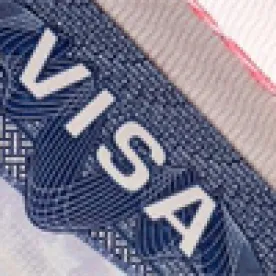In July 2016, USCIS announced a final rule expanding eligibility of immigrant visa applicants to provisional waivers of unlawful presence under INA section 212(a)(9)(B). Under the former rule promulgated in 2013, only applicants immigrating as immediate relatives (i.e., spouses, parents, or unmarried children of U.S. citizens under 21) could qualify for the waiver of the three or 10 year bar due to unlawful presence. The new rule now allows anyone, regardless of their immigrant classification, to qualify for the waiver provided they meet the other requirements.
The waiver rule was established to promote family unity, and the 2016 changes contribute to this goal. The change in eligibility is significant, as it allows applicants who would have immigrant visas based on family, employment, diversity, or special immigrant status to apply. Additionally, under the previous waiver rule, an applicant was not eligible if the Department of State initially acted before January 3, 2013 to schedule the immigrant visa interview; now with the new rule, the temporal limitations based on interview scheduling have been eliminated, considerably expanding eligibility. However, there are still many critical nuances and limitations to the waiver rule.
For example, the requirement that the applicant must be able to demonstrate the risk of extreme hardship to a qualifying relative has not been changed – specifically, the guidelines of who is considered a qualifying relative have not expanded, as this is a statutory definition that USCIS cannot change. Under the 2016 rule, the qualifying relative must still be a U.S. citizen spouse or parent, and concrete evidence of the relationship must be provided. To be granted the waiver, the applicant must prove that its denial would cause extreme hardship to this qualifying relative, should he or she choose to remain in the United States without the applicant or choose to relocate outside the country with the applicant. Further guidance on what qualifies as “extreme hardship” is expected to be released by USCIS shortly.
Furthermore, waivers are still not available to immigrant applicants applying for adjustment of status; rather, the waiver is for those who undergo consular processing. As per the original rule released in 2013, the waiver is meant to reduce the time that applicants are separated from family members by allowing them to apply for the waiver with USCIS before departing the United States for their immigrant visa interview at a consular post abroad. Note that the Visa Bulletin will be an important consideration in the provisional unlawful presence waiver process now that applicants of all immigrant visa categories are eligible. Their Priority Date must be current for applicants to apply for the waiver with USCIS, and proof of payment of their visa fee bill should be included in the waiver application.
There are also very specific procedural issues applicable to foreign nationals in removal proceedings regarding when they should apply for the waiver with USCIS. The 2016 rule still does not provide interim benefits such as Employment Authorization Documents to waiver applicants. Importantly, the expansion of the waiver does not affect other grounds of inadmissibility: it applies only to unlawful presence grounds, and other inadmissibility concerns may still be considered aggravating factors. The decisions to grant the waiver and then the immigrant visa remain discretionary based on many considerations.
The rule, along with the corresponding changes to Form 601A, Application for Provisional Unlawful Presence Waiver went into effect on August 29, 2016. USCIS is now only accepting 601A forms with edition date 07/29/2016.


 />i
/>i

